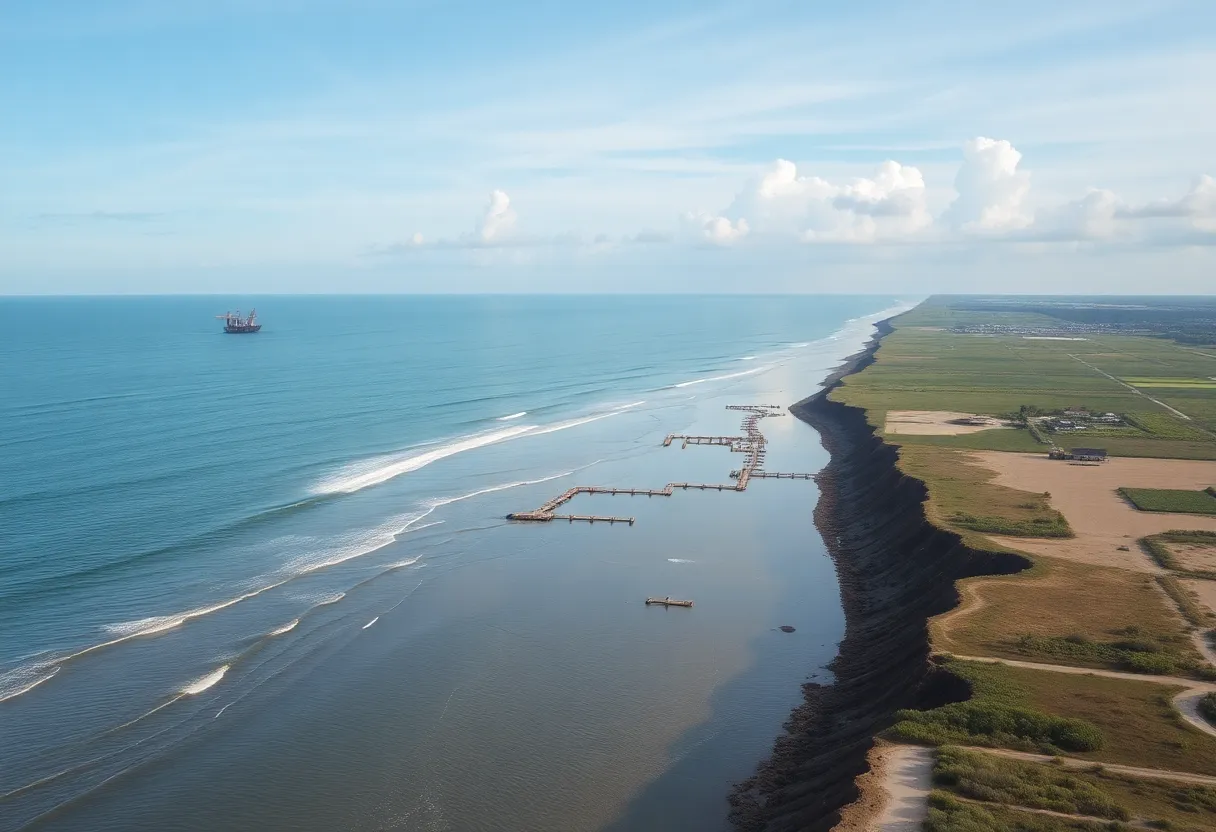News Summary
A bipartisan bill passed in Congress aims to increase offshore oil revenue for Louisiana by $50 million annually over the next decade. The One Big Beautiful Bill Act will fund crucial coastal protection and restoration efforts, addressing imminent funding declines faced by the state. This legislation is vital in supporting Louisiana’s infrastructure against climate change and rising sea levels, with broader implications for energy production and coastal resilience.
New Orleans, Louisiana – Following bipartisan support, a significant piece of legislation that increases offshore oil revenue for Louisiana has passed in Congress. The One Big Beautiful Bill Act, championed by the Trump administration, includes a provision that will grant Louisiana an additional $50 million annually over the next decade specifically aimed at funding coastal protection and restoration projects. This increase is crucial as the state grapples with a pending decline in coastal protection funding.
The bipartisan measure, which has received broad support across Louisiana, is tagged as a vital step toward ensuring the state can maintain its coastal infrastructure in the face of climate change and rising sea levels. House Majority Leader Steve Scalise, who played an instrumental role in advocating for this measure’s inclusion in the bill, highlighted that the increase could provide hundreds of millions of dollars for necessary flood control, hurricane protection, and coastal restoration efforts.
The Gulf of Mexico Energy Security Act (GOMESA) is at the heart of these changes, making Louisiana eligible to share in a portion of the offshore oil and gas revenue since its inception in 2006. Under the current provisions of GOMESA, Louisiana, along with neighboring Gulf states Texas, Mississippi, and Alabama, receives 37.5% of offshore revenues. The new bill raises the revenue cap from $500 million to $650 million per year for the next decade, providing an opportunity for Louisiana to maximize its earnings from offshore drilling activities, which could lead to an estimated additional $46 million annually.
In the last fiscal year, Louisiana collected approximately $156 million from revenue sharing under GOMESA. The increased cap now sets the stage for significant funding that will enhance the state’s coastal initiatives. The additional funds are particularly timely as the state’s coastal protection efforts are currently funded through fines and settlement payouts from the 2010 BP Deepwater Horizon oil spill, which are set to expire in 2032.
Louisiana officials have expressed that the state plays a crucial role in the nation’s energy production, emphasizing the importance of its strategic ports for river shipping. Additionally, the newly passed federal bill mandates annual lease sales in the Gulf, further securing a stream of revenue for the state.
Despite the progress made, state officials recognize that the funding from the One Big Beautiful Bill Act is just a preliminary measure in addressing more severe future funding gaps. There is an ongoing long-term goal to completely eliminate the current GOMESA revenue cap, allowing for greater financial support in line with the state’s coastal restoration and resilience needs.
The chair of the state’s Coastal Protection and Restoration Authority underscored that the 30% increase in GOMESA funding will enable them to advance more comprehensive coastal program initiatives throughout the next decade. However, with the expected shift of some financial responsibilities onto the states by the Trump administration — potentially affecting funding for agencies like FEMA and the Army Corps of Engineers — Louisiana’s coastal management landscape remains complex and dynamic.
The bill’s passage is seen as a critical win for Louisiana and its ongoing battle to protect its coastline from erosion and environmental changes through enhanced funding and legislative support.
Deeper Dive: News & Info About This Topic

Author: STAFF HERE NEWORLEANS WRITER
The NEW ORLEANS STAFF WRITER represents the experienced team at HERENewOrleans.com, your go-to source for actionable local news and information in New Orleans, Orleans Parish, and beyond. Specializing in "news you can use," we cover essential topics like product reviews for personal and business needs, local business directories, politics, real estate trends, neighborhood insights, and state news affecting the area—with deep expertise drawn from years of dedicated reporting and strong community input, including local press releases and business updates. We deliver top reporting on high-value events such as French Quarter Festival, New Orleans Jazz & Heritage Festival, and Essence Music Festival. Our coverage extends to key organizations like the New Orleans Chamber of Commerce and Greater New Orleans, Inc., plus leading businesses in energy, healthcare, and education that power the local economy such as Entergy, Ochsner Health, and Tulane University. As part of the broader HERE network, including HEREShreveport.com, we provide comprehensive, credible insights into Louisiana's dynamic landscape.

